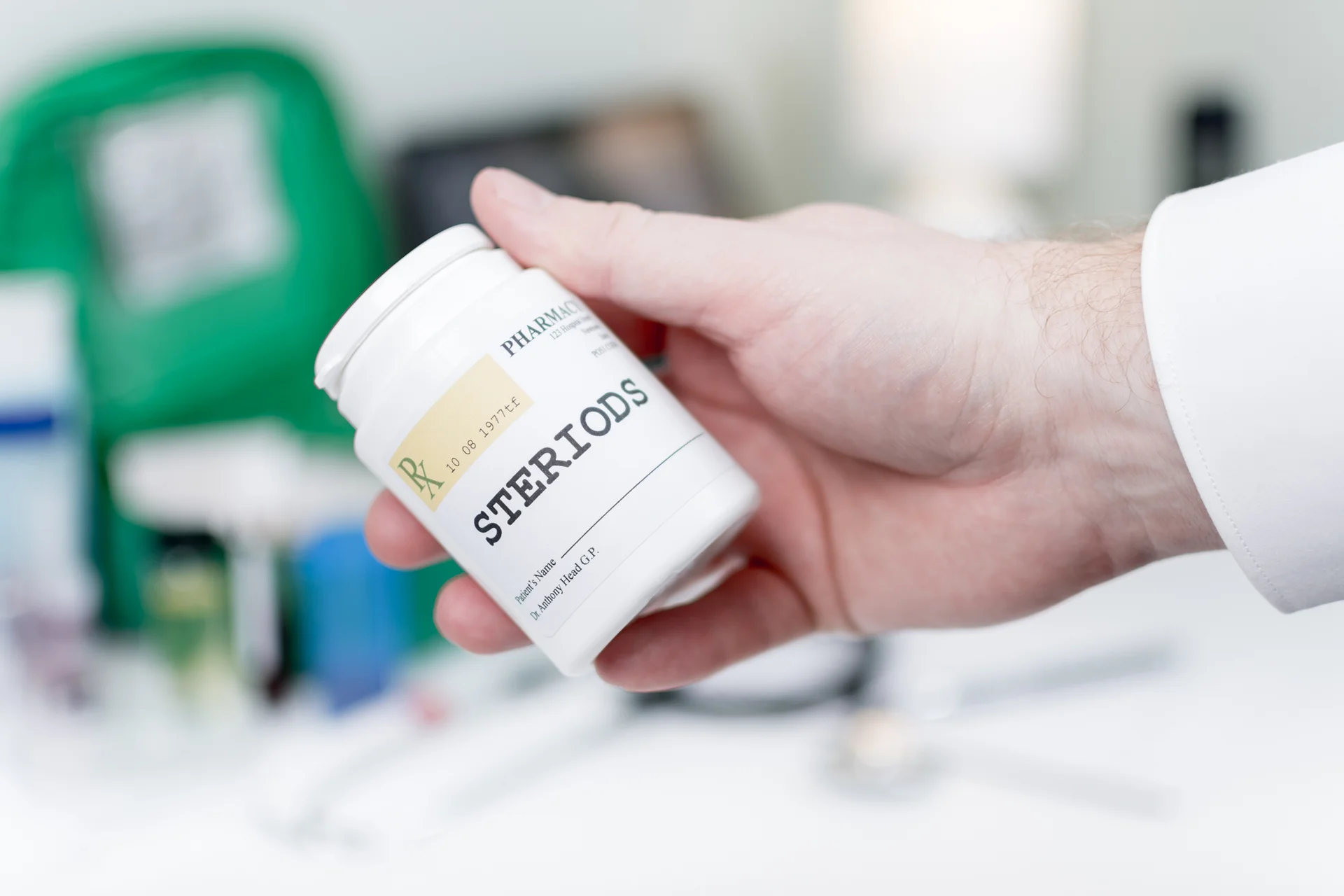Exploring the Impact of Steroid Medications on Histamine Metabolism and Intolerance
Ever wonder if your allergy medicines or anti-inflammatory steroids could be making your histamine intolerance symptoms worse? Some people assume that prescription drugs are always helping them feel better, but in reality, some medications may have unintended effects, especially on conditions like histamine intolerance that aren’t very well understood.
Histamine intolerance refers to an inability to properly break down histamine in the body, leading to unpleasant symptoms like digestive issues, rashes, headaches, and fatigue after eating foods high in histamine or taking supplements containing histamine. The main enzyme responsible for metabolizing histamine is diamine oxidase or DAO.
While steroids are often helpful for reducing inflammation, recent research suggests they could potentially impact DAO activity and worsen histamine intolerance over time.
In this article, I’ll give you an overview of histamine intolerance, explain how DAO maintains the right balance of histamine in your body, explore factors that influence DAO levels like steroids, and provide some tips for managing symptoms even when medication is necessary.
The Role of Diamine Oxidase in Histamine Metabolism
As the main enzyme responsible for breaking down histamine, DAO helps prevent too much histamine buildup in your body. Histamine is naturally present in many foods, especially high-histamine foods like aged cheese, nuts, cured meats, shellfish, spinach, and tomatoes. DAO helps degrade any excess histamine from your diet so symptoms don’t develop.
When DAO activity is impaired, histamine can accumulate and cause problems. For example, low DAO levels have been linked to skin conditions like eczema as well as digestive issues like irritable bowel syndrome. On the other hand, autoimmune conditions where your body attacks DAO may also contribute to histamine intolerance.
Several factors can influence your DAO activity and histamine balance, including:
- Medications: Corticosteroids, in particular, may lower DAO levels and impair histamine metabolism. While steroids are used to reduce inflammation, long-term use could potentially provoke or worsen histamine intolerance symptoms.
- Smoking: Smoking cigarettes leads to decreased DAO activity and increased oxidative stress, making histamine buildup more likely. Quitting smoking can help improve symptoms of intolerance.
- Gastrointestinal health: An unhealthy gut microbiome or damaged gut lining makes it more difficult for DAO to break down histamine properly. Reducing intolerances, inflammation, and leaky gut can boost DAO function.
- Age: DAO activity naturally decreases as we get older, especially over 40, increasing the risk of histamine intolerance for older individuals. Supplementing with DAO enzymes or avoid-ance of problematic foods may be especially important.
In summary, keeping good track of factors that influence your DAO and maintaining a balanced diet low in intolerances helps ensure histamine is properly metabolized in your body, ultimately leading to better health and wellness.
Steroids and Their Effects on Histamine Metabolism
As mentioned, corticosteroids like prednisone are often prescribed to reduce inflammation in the body. While these steroids can be helpful for managing conditions such as allergies, asthma, and autoimmune disease, new research proposes that long-term use or high doses could impact your body’s ability to break down histamine.
Some studies have found a link between corticosteroid treatment and decreased DAO activity or lower levels of this key enzyme. For example, one small study found that plasma DAO activity was significantly reduced in asthma patients taking inhaled corticosteroids compared to non-users. Another found lower serum DAO concentrations in rheumatoid arthritis patients on corticosteroids versus healthy controls.
The mechanisms behind how steroids could influence histamine metabolism are still not fully understood. A few possibilities include:
Direct suppression of DAO gene expression: Corticosteroids may reduce production of the DAO enzyme by suppressing the DAO gene. Lower enzyme levels mean less ability to break down histamine.
Enhanced oxidative stress: Corticosteroids can increase free radical production, and higher oxidative stress is thought to play a role in DAO dysfunction. Reduced antioxidant defenses may make DAO more vulnerable to damage.
Altered gut barrier integrity: Intestinal permeability increases with corticosteroid use, allowing larger molecules like histamine to enter the bloodstream. A compromised gut barrier also hinders DAO’s ability to metabolize histamine properly.
Modified inflammatory and immune responses: By reducing inflammation and immune activity, corticosteroids may indirectly influence DAO levels or activity. Carefully managing inflammation is important for balancing histamine metabolism.
In summary, while corticosteroids provide benefits for certain conditions, the possibility of histamine intolerance development or symptom worsening should be considered, especially with long-term or high-dose use. More research is still needed, but understanding the potential mechanisms at play can help determine effective management strategies.
Clinical Implications of Steroid Use in Histamine Intolerance

While corticosteroids can be helpful for reducing symptoms in some cases of histamine intolerance, they also pose risks that patients should be aware of.
However, long-term dependence on steroids can lead to harmful side effects.
| Clinical Implications of Steroid Use in Histamine Intolerance |
| Potential adverse reactions and concerns include: |
| Impairment of natural anti-inflammatory responses. Corticosteroids suppress your body’s innate ability to fight inflammation, making you reliant on the medication. |
| Weakened immune system. Prolonged high-dose steroid use can cause immune suppression, increasing susceptibility to illness and infection. |
| Metabolic changes. Steroids often cause weight gain, high blood pressure, hyperglycemia, osteoporosis, and cataracts—especially at higher doses or longer duration. |
| Mood disturbances. Corticosteroids can trigger emotions like euphoria, insomnia, irritability, and depression in some users. |
| Gastrointestinal issues. In addition to impacting histamine metabolism, steroids may contribute to peptic ulcers, poor wound healing, and GI bleeding. |
| Interactions with other medications. You must consider all other medications the patient is taking before prescribing steroids, as they can interact with a wide range of drugs. |
The clinical implications of steroid use depend greatly on the individual, severity of symptoms, alternative treatment options, associated health conditions, and more. Close monitoring by a doctor is especially important for patients with underlying conditions or those on high doses/long term. Some key things to consider include:
Starting at the lowest effective dose for your needs. Only increase as needed to minimize side effects.
Carefully evaluating the benefits versus risks of short-term versus chronic use. Chronic use poses the greatest health threats.
Considering corticosteroid alternatives or combo therapy when possible. Other options may have fewer side effects.
Maintaining a healthy lifestyle. Diet, exercise, reducing stress, and quitting smoking can help limit dependency on steroids and promote wellness.
Monitoring for any signs of adverse reactions or worsening symptoms. See your doctor right away if problems develop.
Educating yourself on proper administration, dosing schedules, food/drug interactions and more to use steroids as directed.
Future Research and Considerations
While research on the relationship between corticosteroids, DAO activity, and histamine intolerance continues to emerge, more studies are still needed to fully understand these complex interactions. Some key areas for future exploration include:
Determining the effects of different corticosteroids on DAO levels
Not all steroids impact histamine metabolism equally, so comparing type, dosage, duration and DAO response can provide valuable insights.
Evaluating the impacts of long-term versus short-term corticosteroid use
Chronic use poses the greatest risks but short-term effects also need examination. Dose response relationships require clarification.
Assessing biomedical mechanisms involved
Further research is needed to confirm and expand on theories around DAO suppression, oxidative stress, gut barrier integrity and inflammation regulation. Identifying mechanisms will enable targeted management strategies.
Developing new treatment approaches based on enhanced understanding
For example, DAO supplementation, antioxidant support, probiotics or IgG food testing may help mitigate corticosteroid effects on histamine control and could be studied further.
Exploring personalized medicine options
Determining genetic influences on DAO levels and activity, as well as histamine intolerance manifestation more broadly, enables diagnosis and management tailored to each patient. Customized care leads to optimized outcomes.
Evaluating combination therapies
Steroid therapy alone does not necessarily have to be the only option. Combining steroids with other pain medications, antihistamines, immunosuppressants or complementary medicine leads to an integrated treatment approach providing comprehensive symptom relief with fewer side effects.
Some other clinical considerations for the future include:
- Developing pre-treatment testing to detect patients more susceptible to corticosteroid-related metabolic or histamine issues;
- Determining guidelines for safe and effective use based on clinical trials;
- Improving guidelines for informed consent and clearly communicating risks/benefits;
- Expanding care options with guidelines for using corticosteroids to minimize organ damage or other irreversible side effects, especially for conditions requiring chronic use.
While corticosteroids remain an important treatment tool, more must be done to improve safety, therapeutic effects and patient experience.
Continued scientific research and development coupled with a commitment to personalized medicine will enable practitioners to make the best possible use of these medications whenever needed to effectively manage health conditions like histamine intolerance, allergies or inflammation while optimizing well-being.
Discover Supplements at SeeBeyond Shop
Are you interested in exploring high-quality supplements that may help support your journey towards managing histamine intolerance, especially when using steroid medications? Look no further than our med spa-affiliated SeeBeyond Shop, where we offer a carefully curated selection of supplements designed for various health needs.
Be sure to consult your healthcare provider before introducing any new supplements into your routine. Take control of your well-being and start finding relief today – Visit SeeBeyond Shop now!
